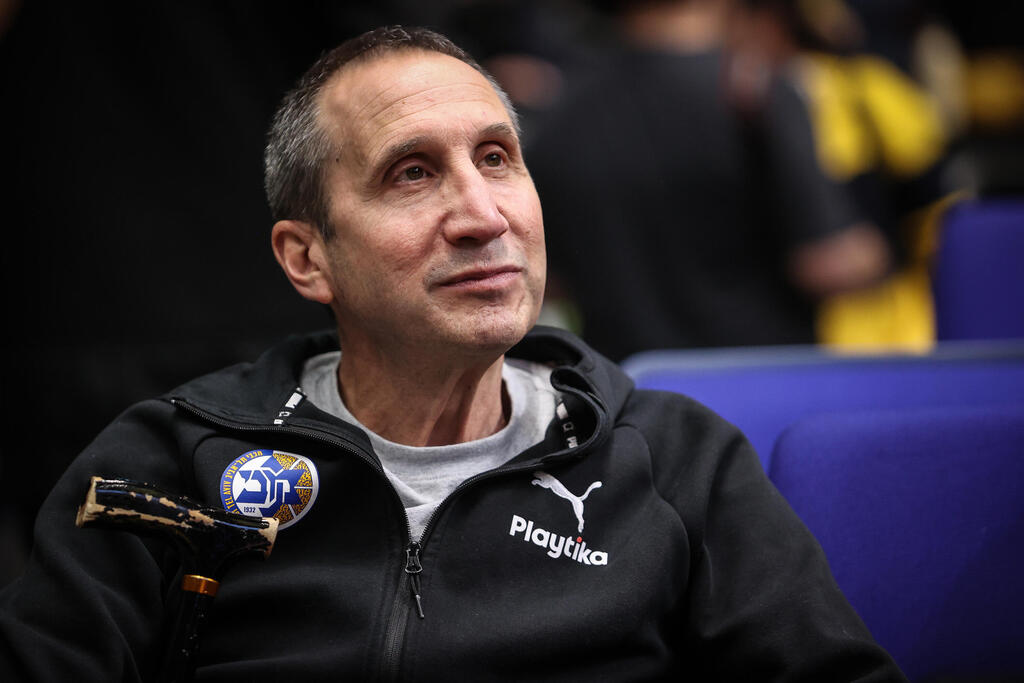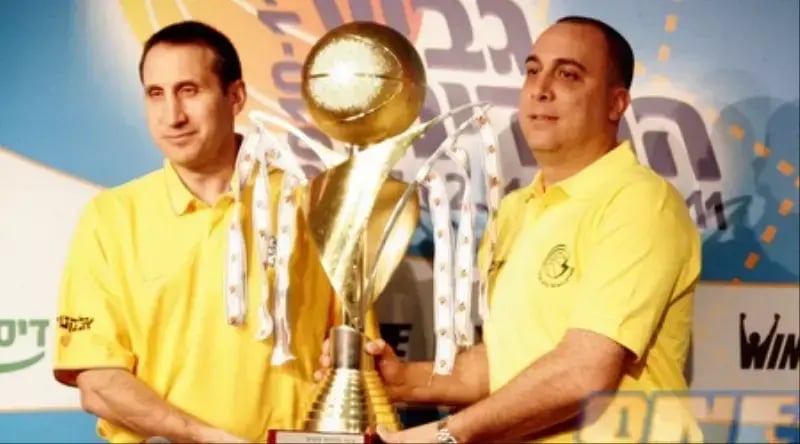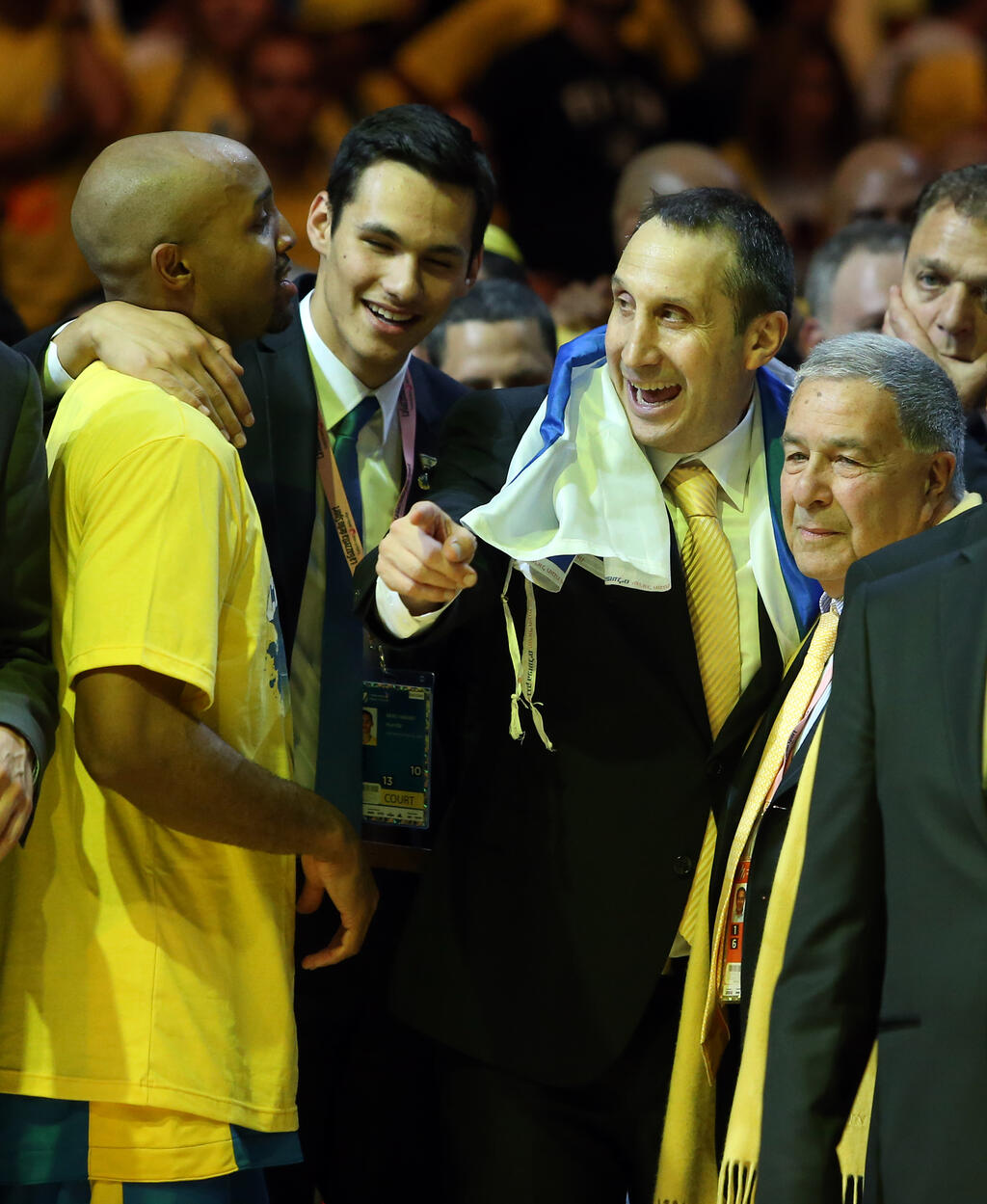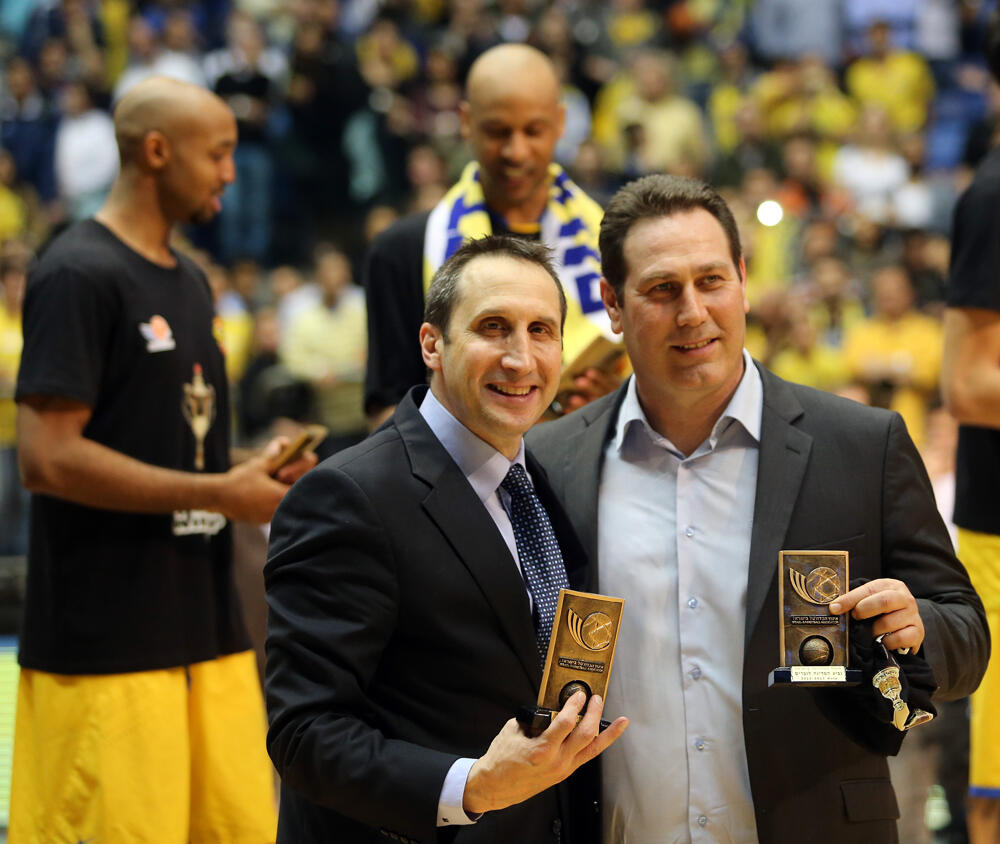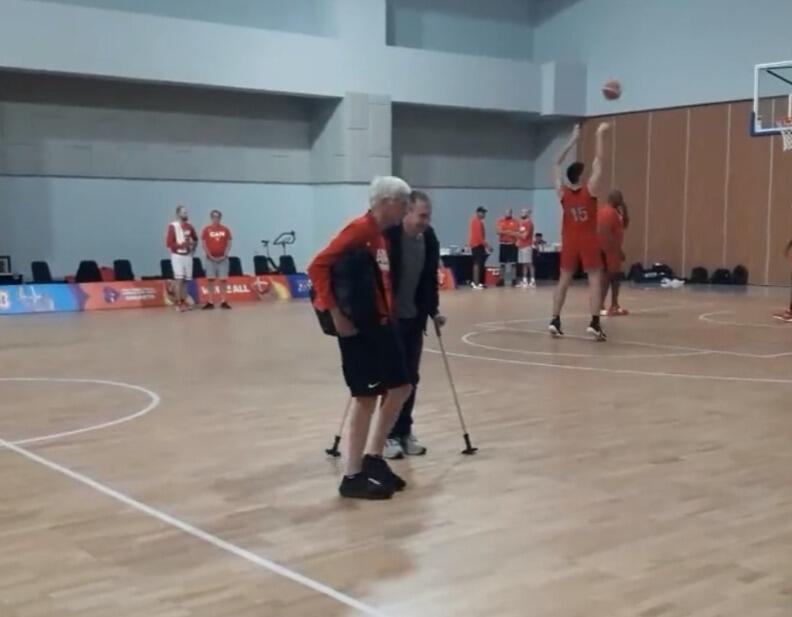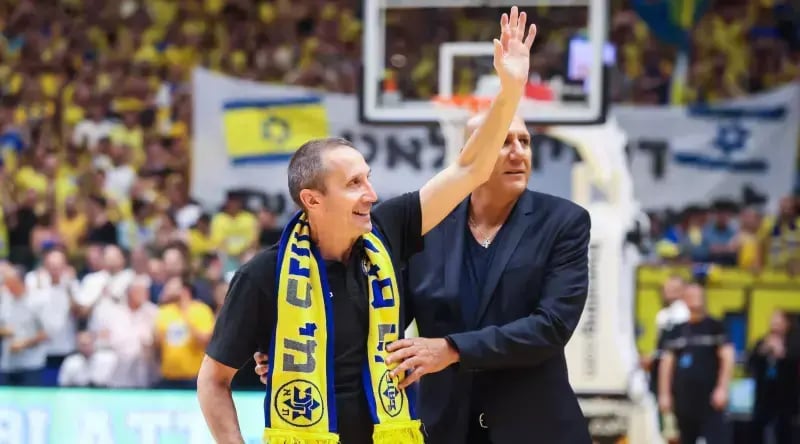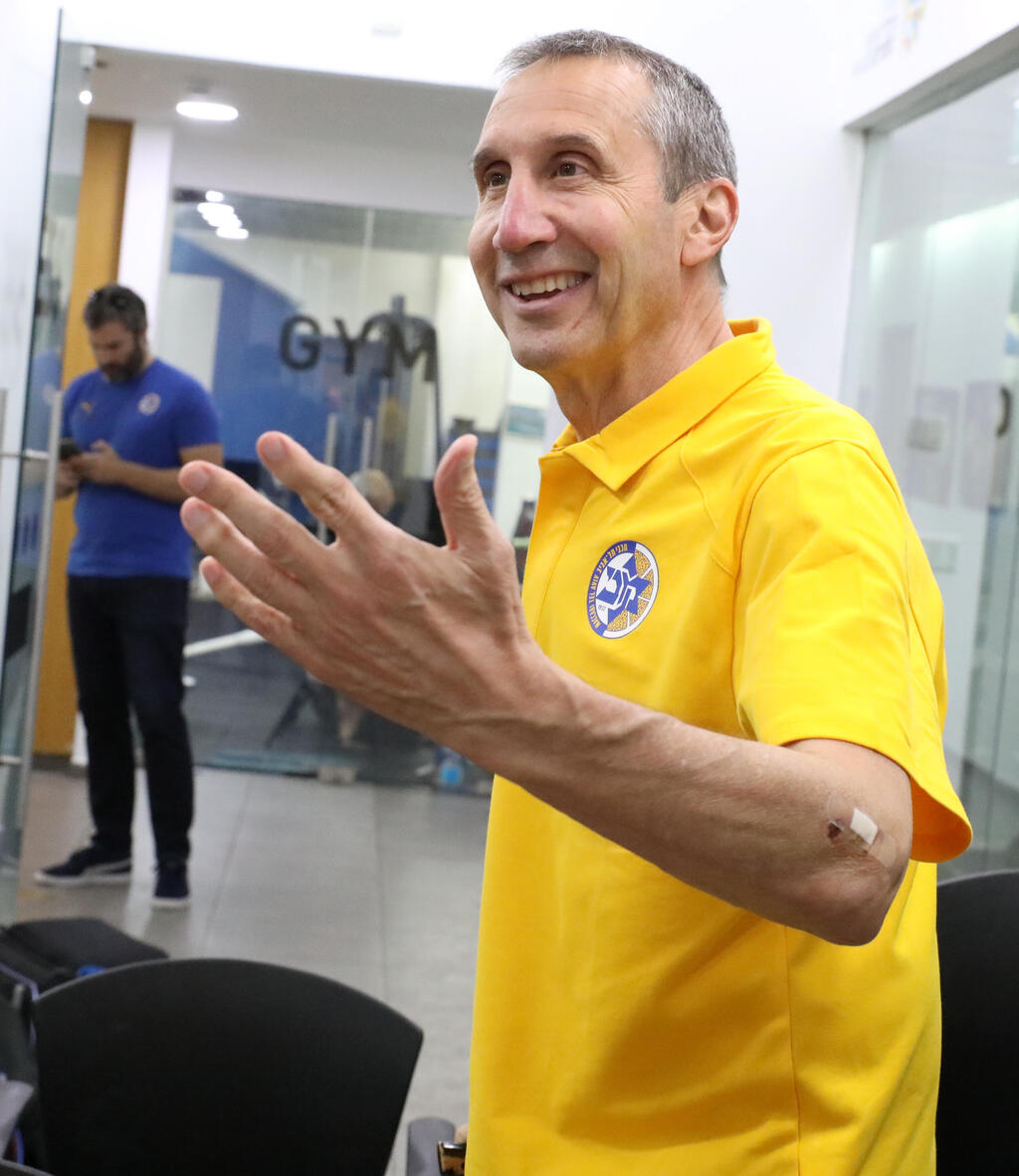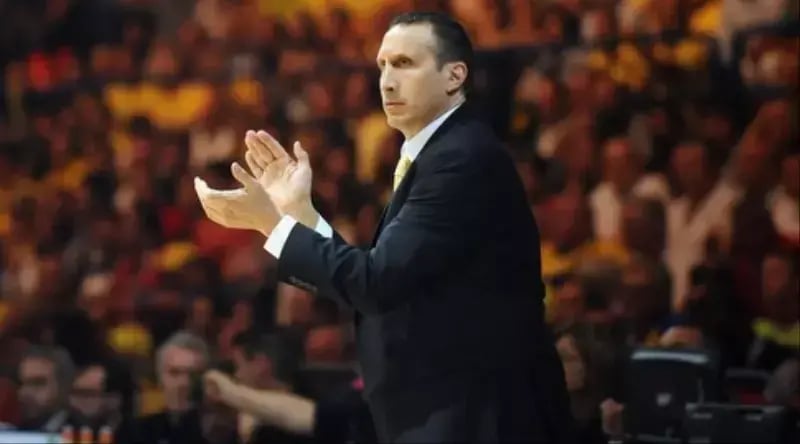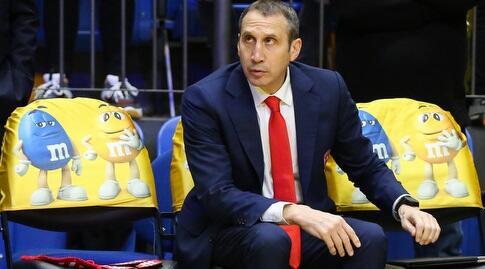Getting your Trinity Audio player ready...
"How does the illness affect me? I'll give you the simplest example: walking. I used to be able to walk for 20 minutes; now I can't do that. It's hard for me to walk without a lot of help, without crutches. I can't walk more than five minutes. That's a small example, and there are other things I don't want to get into.”
More stories:
“Right now, for instance, I'm in a hotel in Indonesia and there's a pool, so I can try to swim, but I can't go for a walk in the park outside, so my solution is to look out the window and enjoy the view that way.”
“If I'm sitting at home on the sofa and someone knocks on the door, I can't go open it the way I want to. It's frustrating for me and for the people who are waiting for me to answer and let them in. They either wait or leave. Take my mornings, for example: I can't freely get out of bed, go wash my face and brush my teeth, it's not easy. It requires a great effort from me. There are basic and easy things that are already hard for me to do."
Four years ago, while coaching Olympiacos, David Blatt's life turned upside down. The man who lives and breathes basketball and has conquered every possible summit revealed that his journey is taking a dramatic turn.
“There are moments when life throws things at you that really have no explanation, reason, or excuse. These are moments when you have to make choices that test your true character,” he wrote at the time.
Blatt revealed that he was diagnosed with primary progressive multiple sclerosis (PPMS), which ultimately prevented him from doing what he loves most—coaching.
However, it certainly did not sever his connection to the sport. The basketball savant stared the disease straight in the eyes and continued to consult for teams and national squads. He does it to this day, even when his body betrays him. Today, he serves as the professional advisor for Canada, one of the most exciting teams in the FIBA Basketball World Cup, which is being held, among other places, in Indonesia.
In an exclusive interview with Yedioth Ahronoth and Ynet from his hotel room in Jakarta, Blatt openly discusses his struggle with multiple sclerosis for the first time, partly to raise awareness about the disease. He also addressed his future with Maccabi Tel Aviv, where he had a dominant role in rebuilding the squad that returned the club to the top of the EuroLeague.
'Strengthening the body'
“I don't want to talk about Maccabi matters, I'll only speak in general terms about my work. I've realized that to maintain my health, there are things I need to reduce, or at least limit, to approach them differently than I have until now,” Blatt explains.
“It's not easy, but what can you do? You have to know how to cope and take care of yourself. I feel obligated to do this because I understand that one of the ways I can somewhat improve my health condition is not to harm and overburden myself'."
Blatt, 64, is one of the most important and influential figures in Israeli sports. Last season, he served as the chairman of the Professional Committee and a consultant for Maccabi Tel Aviv, and was involved in the signing of Wade Baldwin, one of the team's best signings in recent years.
There's no Israeli coach who has achieved as much or has done such tremendous service for Israeli sport, even if he has never had the opportunity to coach the Israeli national team.
The man who climbed to the top of the world with LeBron James' Cleveland, making it to the NBA Finals; the sensational win with Maccabi Tel Aviv in the EuroLeague along with five Israeli championships and six Israeli cups (not to mention the titles he won as Pini Gershon's assistant); the EuroCup win with Turkey's Darüşşafaka; and of course, the historic win with Russia in the European Championship and the bronze medal at the 2012 London Olympics.
Later, after being forced to end his coaching career, he still managed to check off another prestigious job when he became a consultant for the New York Knicks.
Now, alongside basketball, Blatt's mission is to share as much as possible about the disease that's shaking up his life. “I feel it's my duty to share what I'm going through because my goal is to help other patients in my situation. It's important for them to have good company and support from others to cope well with the disease,” he emphasizes.
“It's not easy, it doesn't always work the way you want, but there has to be a willingness to commit to taking care of yourself. This is the kind of hope or inspiration I would like to share with everyone.”
What can you tell us about the disease?
“Each person experiences different symptoms. I was diagnosed with PPMS, which is characterized by a gradual decline in mobility, affecting different parts of the body. The medications available today are supposed to halt the deterioration as much as possible, but there's no real solution for now.”
“It's been four years since I was diagnosed, and I had a decline in mobility since I realized I have this thing. I try to cope through the medications available today, and my investment is in strengthening my body and mobility to deal with other things, such as side effects of the disease. To say there has been no decline in my physical functioning? Unfortunately, I can't."
‘Living with the fears’
Social media was flooded with your video from the Canadian national team practice, where you're using crutches to get to the bench area. As someone who has always radiated strength and power, how difficult is it for you mentally to be in this condition?
"It's not an easy question, I must tell you, but I want to answer it. I certainly feel uncomfortable with it. If I were to answer differently, I wouldn't be telling the truth, and I don't want to do that. It's not easy for me, because people have known me to be physically different.
“What's good is that I hope I haven't changed too much in terms of personality and mental functioning. One of the symptoms of this disease for some people, thankfully it hasn't happened to me yet, is that they suffer from a decline, sometimes drastic, in cognitive function. It can affect your vision, your hearing and many other things. Personally, I don't suffer from these things, thank God, at least for now, but somehow it affects me.
“Physical limitations are not easy for anyone, certainly not for someone like me who is used to being super active and seen as a strong and active person. Physically, I don't look like that today and it hurts. Again, if I tell you something else, I won't be truthful. It's from this place that I cope."
Tell me about your fears, about the moments when you say to yourself, 'Why did this happen to me?'
"Of course, there are fears about certain things, but you have to learn to live with it. I wouldn't be frank with you or myself if I said that I'm not afraid. I am afraid of the kind of disabilities that may still come my way. That's why I work very hard, try to take care of myself, and strengthen myself.”
“Because I'm a realist and I've tried with all my might to learn about the disease itself, I understand that it's not something you can know why it happens or where it comes from. I simply understand that it's something that happened, that I had no control over it, so I don't feel despair that it happened specifically to me. It happened, and it happened to others too. And I'll tell you something else: not that it comforts me, but worse things happen. I'm the last one to feel sorry for myself."
‘Thank you, everyone’
Mentally, how much has sport helped you in coping?
"It helps a lot. I see people who are willing to invest their all for a goal, to be the best for their teams or for themselves if they engage in individual sports. If I can somehow still help players, coaches, or managers in my own way, then it fills me with satisfaction and happiness. That's also why I am with the Canadian national team."
The thing that most complicates your ongoing work routine is the long flights.
"Flights are difficult for me. It's not just sitting on a plane for many hours, but also the comings and goings around it and everything that involves. For example, when I arrive in Tel Aviv like many people with disabilities, they take care of and consider us. I feel fortunate that we are taken care of so well, and I say thank you to everyone. But it's not easy; it's an effort for me, and it makes flights difficult for others.”
“People don't make me feel uncomfortable in Israel. But there are a lot of incidents when you fly, especially when you arrive at places that don't know you or don't know where you're coming from. By the way, even though your flight ticket clearly states your disability and they should take care of you, it doesn't always happen. Then I find myself stuck in a sort of situation where I can't get from here to there to catch the next flight, which is really unpleasant."
Air Canada
Twenty years after the huge achievement with Russia, Blatt is eager to return to the Olympic stage, this time with Canada, which has built one of the most quality rosters in its history. After beating Spain in the quarterfinals, the Canadians are set to face Serbia on Friday - and from there the sky is the limit. The Israeli made it clear that he will not serve as a consultant for the University of Arizona next season, where his close friend Tommy Lloyd, who has a close relationship with him, coaches, in order to dedicate his time to the project in Canada.
Despite the tremendous difficulties involved, Blatt decided not to give up on the long journey to Jakarta. "It's a long trip. Training camp in Toronto, then to Berlin and Granada, and from there we flew to Indonesia. These are not easy trips as you can probably imagine. It's not easy for me. I'm definitely happy to be with the team, enjoy it, and feel an inseparable part of it.”
“The feeling that I am doing and contributing something on the mental and emotional level really pleases me, but physically it is not easy for me at all. I am dealing with a complicated situation, but I manage thanks to good people who help me. I also help them a bit and hope that it satisfies them.”
How did the connection with Canada come about?
"Five years ago, when I was coaching Olympiacos, I gave a big lecture to coaches in Toronto. Rowan Barrett, who played for Maccabi Rishon LeZion and Ramat Hasharon and is now the general manager of Canada, approached me and offered me to coach the team. He said they were very impressed with my experience with the Russian national team.
“But then my back problems started. I thought they were orthopedic issues, but over time I realized they were related to sclerosis. I had to apologize to Barrett because I didn't feel I could work throughout the entire year as I had done for four years with Russia and the professional teams I coached.
“I apologized that I couldn't do both things, and then he said that maybe over time they would want me to join them in another way, some sort of professional consultancy. And I said I was open to that idea. Two years later they actually approached me and offered me a more formal, serious job, and I joined as a consultant for Team Canada."
What are you planning for next season, perhaps reaching the Paris Olympics?
"If we get there. We need to be one of the top two teams from America in the World Cup to get the ticket to Paris. The question is whether I'll be able to get there at all. I don't want to put the cart before the horse, let's see what happens."
‘Long process’
Canada has become one of the best teams in the World Cup, including seven players from the NBA and the big star Shai Gilgeous-Alexander from Oklahoma.
"There's a long process here. In recent years, many players are growing; some are joining colleges in the U.S., others are leading teams in Europe, and there's a significant number playing key roles in the NBA. This blossoming has not yielded significant results for the national team in recent decades, and this is one of the reasons Rowan Barrett took command and decided to set things straight, aiming to lead Canada to the top of global basketball.
“The person coaching us is the Spaniard Jordi Fernandez from the Sacramento Kings, who brings with him European experience. We want to get to the Olympic Games in Paris, gain more experience, and advance."
You also have a player who will play for Hapoel Tel Aviv in the upcoming season, Kyle Alexander, who came from Valencia. What can you tell us about him?
"I've known him for three years since he started with us in the Canadian national team. He's a very good player and an exceptional guy."


